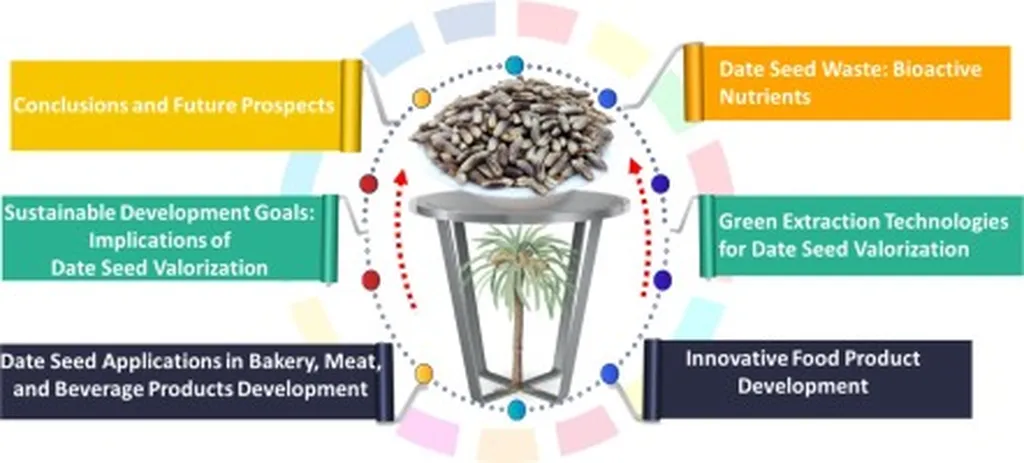In the heart of Turkey, researchers at Eskisehir Technical University have made a significant stride in the quest for sustainable water treatment solutions. Abdul Aziz Abdul Rahim, the lead author of a study published in the journal ‘Desalination and Water Treatment’ (which translates to ‘Water Treatment and Desalination’), has unveiled a novel approach to removing the harmful insecticide carbofuran from water sources. The study focuses on the use of activated carbon derived from date seeds, further enhanced with polyaniline (PANI) coatings, to create an efficient and eco-friendly adsorbent.
Carbofuran, a widely used carbamate pesticide in agriculture, has long been a concern due to its persistence in water bodies, posing threats to both ecosystems and human health. The research conducted by Abdul Rahim and his team explores the adsorption performance of activated carbon (AC) from date seeds and its PANI-coated composites. The team prepared the ACs through chemical activation with ZnCl₂ and functionalized them with varying PANI loadings (5%, 10%, and 20%).
The study’s findings are promising. The optimal PANI coating was determined to be 5%, with the AC/PANI5 composite demonstrating rapid carbofuran removal. “The AC/PANI5 material provided fast CF removal compared to the others,” noted Abdul Rahim. Specifically, the percentage of carbofuran removed was 97.4% at 360 minutes and 98.6% at just 120 minutes for the AC and AC/PANI5 composite, respectively. This efficiency is a game-changer for water treatment processes, offering a swift and effective solution to pesticide contamination.
The adsorption kinetics followed the pseudo-second-order model, indicating chemisorption as the dominant mechanism. According to the Langmuir isotherm model, the carbofuran adsorption capacities were calculated to be 205.1 mg/g for AC and a remarkable 327.6 mg/g for AC/PANI5. Thermodynamic parameters revealed that the adsorption process was endothermic and spontaneous, further underscoring the viability of this method.
The implications of this research are far-reaching. The use of date seeds, an abundant and low-cost agricultural byproduct, to create activated carbon offers a sustainable and cost-effective solution for water treatment. The addition of PANI coatings enhances the adsorption capacity without causing excessive pore blockage, making this composite material highly efficient.
“This study suggests that date seed-based composites offer an efficient, low-cost, and sustainable solution for the removal of carbofuran from contaminated water,” Abdul Rahim explained. The findings not only address a critical environmental issue but also pave the way for future developments in water treatment technologies. As the world grapples with increasing water pollution, innovative solutions like this one are essential for ensuring access to clean and safe water.
The research published in ‘Desalination and Water Treatment’ highlights the potential of integrating advanced materials with traditional water treatment methods. By leveraging the unique properties of activated carbon and polyaniline, this study opens new avenues for the development of high-performance adsorbents. The commercial impacts for the energy sector are significant, as efficient water treatment solutions are crucial for maintaining the integrity of water resources and supporting sustainable energy production.
In conclusion, the work of Abdul Aziz Abdul Rahim and his team at Eskisehir Technical University represents a significant advancement in the field of water treatment. Their innovative use of date seed-based composites offers a promising solution to the challenges posed by pesticide contamination, setting a new standard for sustainable and effective water treatment technologies.

